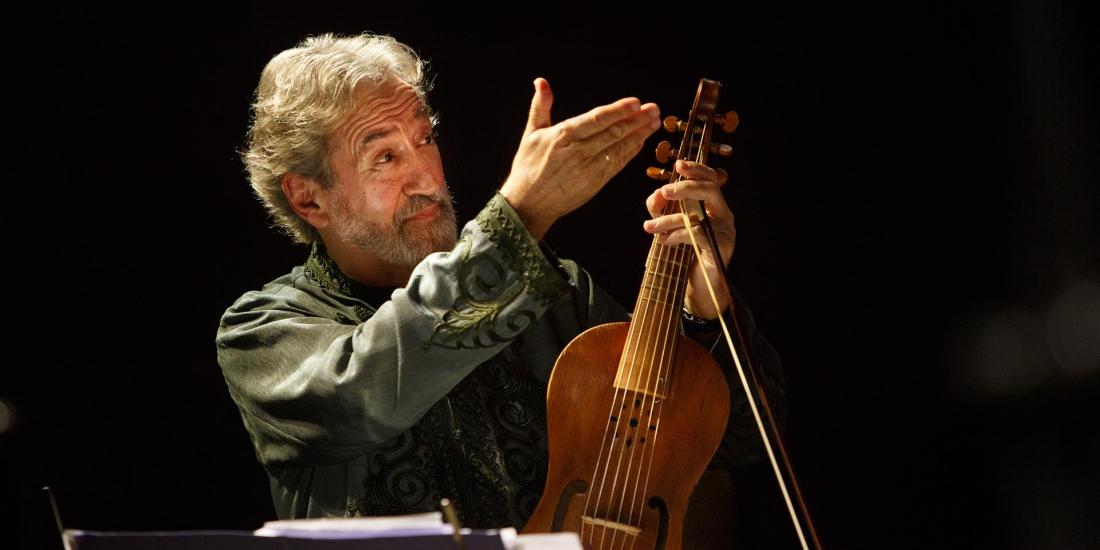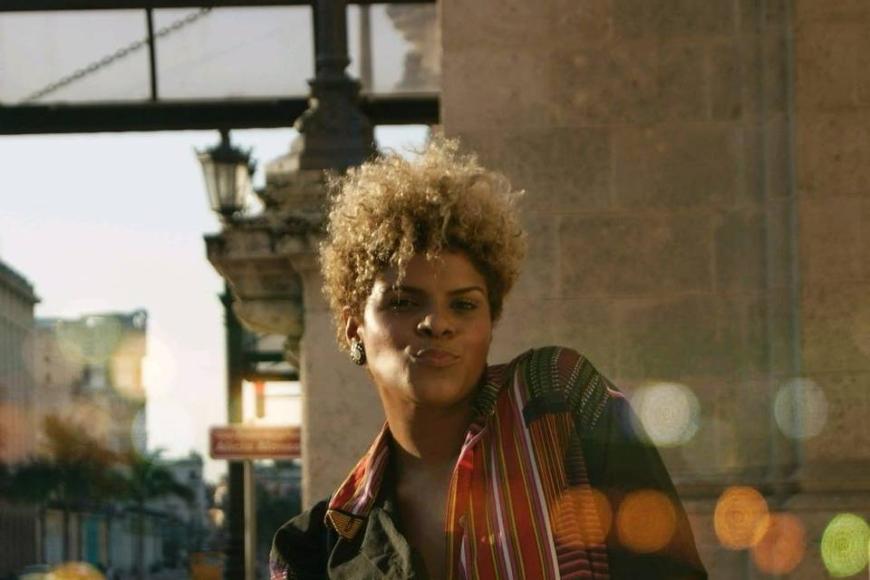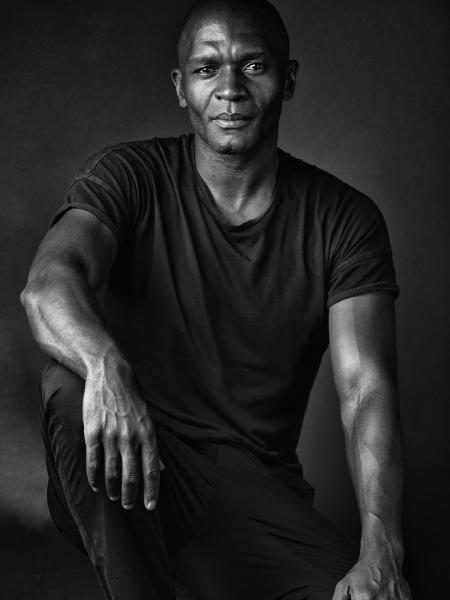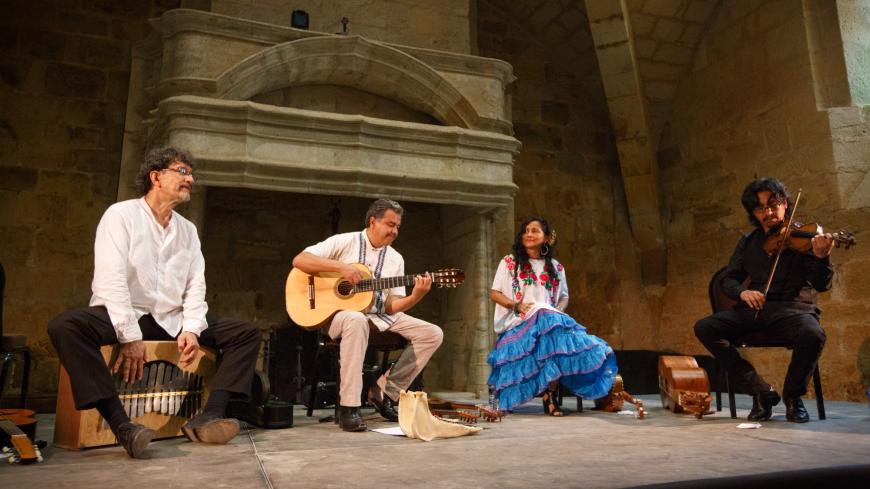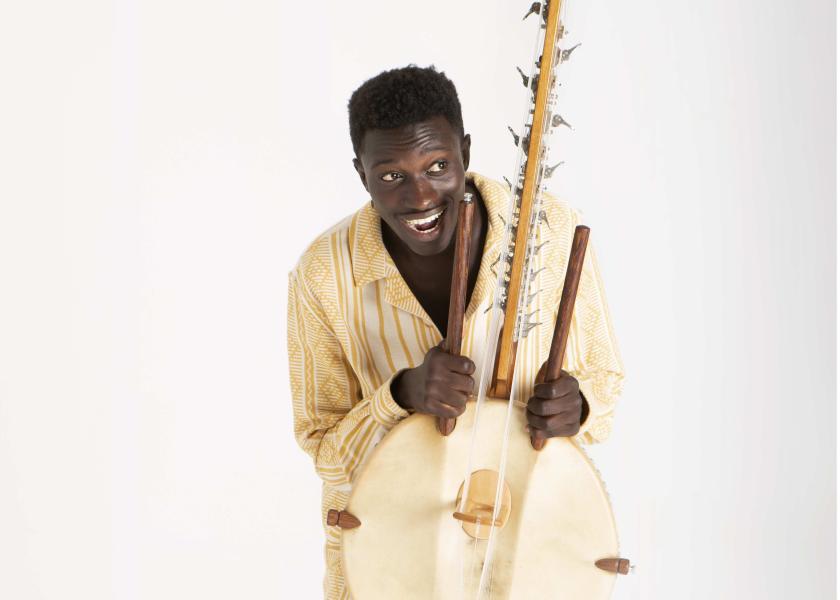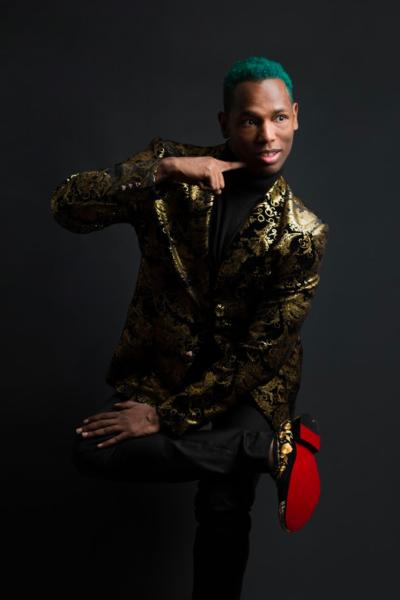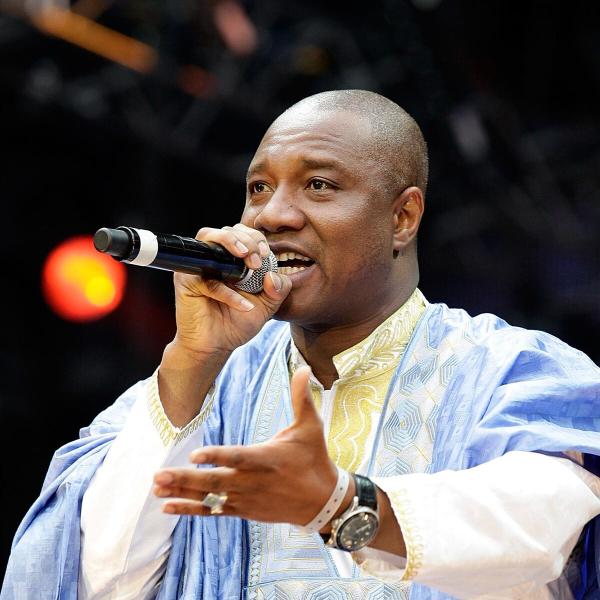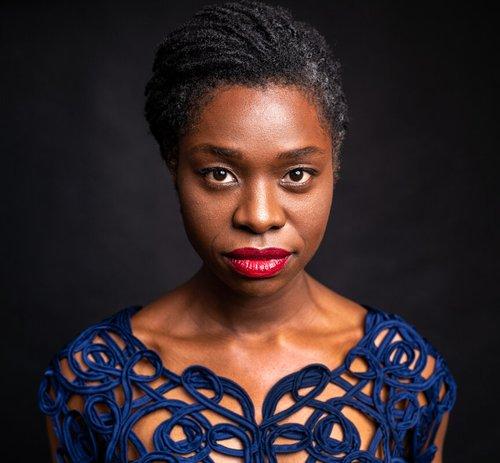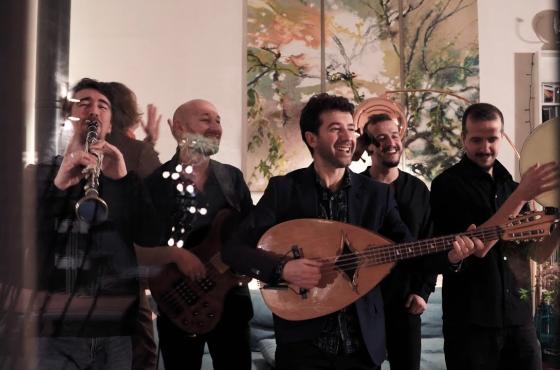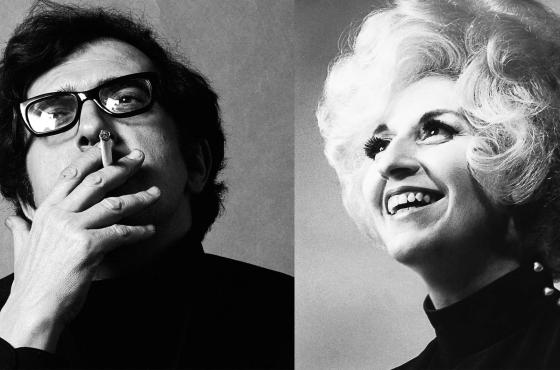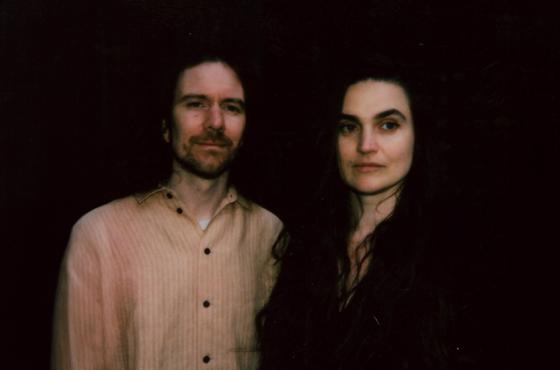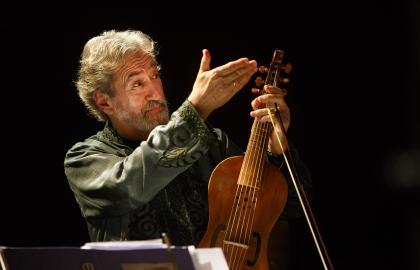“Un mar de músicas” combines early music from Africa, America and the Caribbean islands – music that we know relatively little about here in Central Europe. What inspired you to create this programme?
Jordi Savall: For one thing, I have extensively researched the presence of the Spanish in South America and the musical influences related to that. I discovered that, especially at the beginning of the 17th century, many composers were inspired by the traditional music and languages of the slaves and the indigenous population in their works. These are the so-called “Villancicos de Lenguas” or “Villancicos Criollos”. The lyrics are mostly in Spanish, but some of the verses are in African or indigenous languages, or at least influenced by them. I also did some research in the library in Las Palmas de Gran Canaria. This harbour was where many ships with enslaved people and sailors on board waited until the weather was good enough to set sail for America. Sometimes they had to wait there for a month or even longer until the meteorological conditions allowed for such a long journey. There are also “Villancicos de Lenguas” with verses in Arabic, Italian and Polish – in many different, sometimes unexpected languages. The sailors came from different countries, often bringing a guitar with them on the long journey, or singing and dancing. They needed music – and it was up to them to make it!
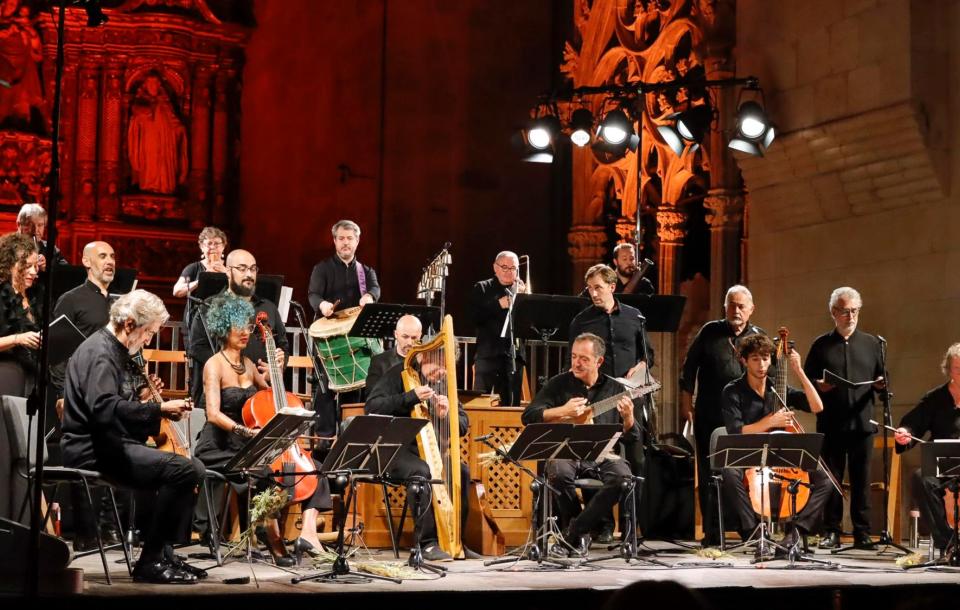
Your concert comprises mainly music that has only been passed down orally. How did you come across this music, and what did this journey back through history spark in you?
Savall: I started reading a lot of books about the history of slavery. Every year, millions of people were kidnapped in Africa and taken to the Canary Islands or any of the various other places where people were imprisoned until a ship or a trafficker came to pick them up. For the people actively taking part in this system and profiting from it, the lives of the enslaved people were worth nothing. I was deeply affected by this inhumanity, and the many tragic stories never fail to move me. I realised that I had to address this history – through music. Once I began my research, I realised that so much of the beautiful music from America – the music we know today as Negro Spirituals, as well as the music of the entire Caribbean region and from Colombia, Brazil and Mexico – is heavily influenced by African traditions.
In particular, the concert highlights the African influences that can be heard in Cuban music. These musical works originate from very old religions that still exist today. I started working with younger people who are keeping these traditions alive. And then I had the idea of creating a concert programme with historical works that were sung around 1550–1600. We start with music from the early 16th century and then continue chronologically through history. Combined with old traditional music from African countries – from Madagascar and Mali – and from South America – Colombia, Brazil and Mexico – we were able to put together a wonderful programme.
The other main aspect of this programme is the recited texts. Where did these originate?
Savall: I was looking for contemporary written sources that tell us what happened back then. The first comprehensive document describing how the slave trade system worked dates back to 1455: Portuguese soldiers went into a village and took all the young adults with them. The soldiers killed all the children and old people, and took the healthy young women and men and carried them off on a ship. When they arrived at the Algarve, they were separated. Brothers from brothers, women from men and so on. On his horse, King Alfonso V ended up selecting some of the enslaved people for the royal couple. This description documents the barbaric inhumanity for the first time. Slavery has always existed. The whole Greek civilisation would not have functioned without an underclass, without people who only worked. The story of people’s struggle for survival against slavery is a very moving one. And music played an important role.
What does the music tell us about these enslaved people?
Savall: You have to imagine that these people had nothing – least of all, rights. But they could sing. They could dance. That was the only freedom they had. When they sang the music of their cultures, they felt a connection to their history, to their existence. They told old legends, beautiful stories. First and foremost, these were not protest songs, because protesting wasn’t yet an option. They were songs that connected them to their culture, to their homeland. And the development of the stories clearly shows that early on, the sea was was a big source of fear. The sea was the route to an unknown world, without freedom. In other stories, the sea takes on a new meaning: when people have already arrived in the “New World” and view the sea as a way back to freedom. The title of today’s concert, “A Sea of Music”, refers to the many musical traditions that have survived to this day where the sea plays an important role.
You already mentioned that traditional music from African cultures can be heard in Cuba and Brazil, for example. Religious music also has a heavy influence, especially from the Yoruba religion. Over the course of the centuries, this religion has mixed with Christian traditions in South America, leading to a variety of cultural expressions. What is this religious music of the slave era about?
Savall: The various religions have helped people to maintain hope – the spiritual dimension of their existence has given them strength. The Yoruba traditions still have a very strong influence today. The music is very powerful, something we will hear in this concert, emphasised by the large drums. Every musical style has a very special rhythm. It is such incredible, beautiful, archaic music – so intense and so emotional.
So, besides old European instruments, you are also using instruments from these other cultures?
Jordi Savall: Yes, each group brings different instruments. For example, the kora comes from Mali. It’s a West African harp, a fantastic instrument. The musicians from Mexico and Colombia play guitars from this bygone era. The Cubans and Brazilians will also be bringing their guitars and drums. It’s a fantastic mosaic of different cultures.
What music from Haiti will you be presenting?
Jordi Savall: We work with a singer from Haiti, Sylvie Henry, who has a wonderful voice. She sings beautiful traditional songs from that time. There is a certain contrast in the music, often sounding very sweet and lovely, then like a lament, then very joyful again – these people compensated for their many troubles by singing. The more they suffered, the more optimistic the singing had to be. That was the energy that saved them and gave them strength and hope.
From Haiti and Cuba, we cross the sea to the mainland as the programme features music by Gaspar Fernandes from Mexico. The songs’ lyrics are partly in the ancient language Nahuatl, which was spoken by the Aztecs and other Nauha peoples in Central America and is still the mother tongue of some of Mexico’s native population today. The songs have Christian content – how did this cultural mix come about?
Savall: In Mexico, it was customary to retain the indigenous languages. This resulted in a wonderful mixture of musical styles. Elias Canetti comes to mind. In 1942, in “The Human Province”, he wrote that the true history of mankind is music. Music speaks to our emotions, to our hearts. When we listen to this early music, it triggers the same feelings in us as it did in people back then. And I say, without music, history would just be a huge desert. Music brings history to life, and through the emotions we can empathise with it to a certain extent.
How has the music of enslaved people and the indigenous peoples influenced European music?
Savall: Take the chaconne, for example. Today we know fantastic chaconnes by Bach, by Rameau, by all the great composers. But around 1590, Lope de Vega talks about the so-called chacona, and I quote: “Esta indiana amulatada que nos viene de las Indias.” He says that the chacona comes from the indigenous and Black people of the “New World”. Imagine: A sailor, a good singer with his guitar, sings a song, and then the Black people in America imitate it. They develop a new music, which goes back across the sea and becomes a very popular chacona known as “A La Vida Bona” by Juan Arañés, published in Rome around 1608. This is the first chaconne. And its music is very lively. Later, like all dances in the 17th century, the chaconne becomes more cumbersome. Because these dances come from the villages to the court: Wigs and large dresses are worn, and everything becomes more cumbersome and slow.
You have developed this programme with musicians coming from many different traditions. How much do you learn from each other in the working process?
Savall: I have enormous respect for all these musicians. Music isn’t something they learned at a conservatory as if it were a foreign language – it’s an integral part of their mother tongue. Even in Bulgaria, Turkey and Greece, for example, where music comes from ancient traditions, people learn music the way we learn to speak. It’s ingrained. When you make music based on improvisation, it is enriching. It creates an incredible atmosphere, a creativity with a certain authenticity. It’s a contrast to our system of music notation.
What do you think the audience can take away from this concert – mentally and emotionally?
Savall: I hope that the audience can develop more empathy for this dark moment in our history. I believe that the good of a civilisation lies in its ability to reflect on its history. If we don’t know our history well enough, we can’t create a good future. And I believe that coming into contact with this living music from different cultures, and hearing the words that tell us what happened, can make a difference. You can’t imagine what life was like for these people. Great philosophers lived at the same time, generating great spiritual ideas – but at the same time we humans remain beasts. I would like the audience to feel empathy and realise that we still have similar problems today. It’s all very topical – unfortunately.
This interview was written by Olivia Artner for Berliner Festspiele / Musikfest Berlin.
